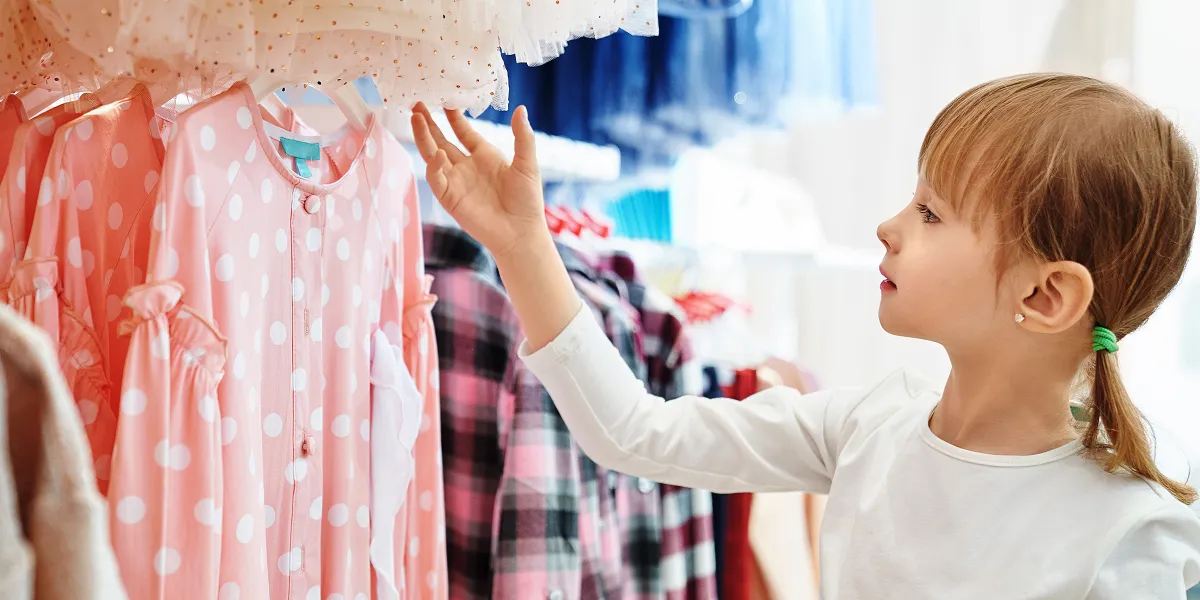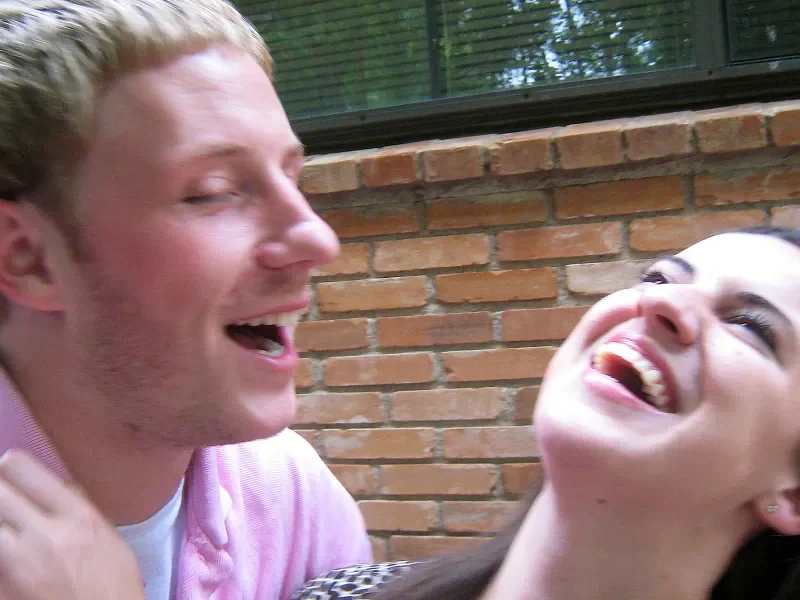When Rachel buys a simple yellow dress for a little girl at a flea market, she thinks it’s a small act of kindness. But the next day, there’s a knock at her door that changes everything. What begins as a chance encounter grows into something deeper—proving that sometimes, the family we choose finds us first.
Some days, life feels like one long list of things that need fixing—leaky faucets, forgotten permission slips, unopened bills, and leftover dinners that no one really wants.
But then there are quiet moments that remind me why I keep going.
I work in a small home goods store, tucked between a bakery and a nail salon, where I spend most of my day answering phones and making sure the inventory system doesn’t crash. It’s not exciting, but it pays enough to keep the heat on and food in the fridge.
That’s all I’ve ever really needed since it became just me and Lily.
My daughter is 11 now and growing ridiculously quickly. She’s smarter than me in most ways, with that kind of old-soul wisdom kids sometimes carry when life hands them more than their share too early. She was only two when her dad passed.
And since then, I’ve been everything: the one who sings lullabies, checks math homework, and remembers where the extra toilet paper is stored.
It’s not the life I imagined, but it’s ours. And most days, it’s more than enough.
Still, I consider us lucky. We have each other. We have laughter. We have music in the mornings and hot cocoa in the fall. It’s not perfect, but it’s ours, and that’s more than I ever expected some days.
I wasn’t looking for anything specific that afternoon—just wandering around. It had been a long day at work, and I wanted 30 minutes of quiet before heading home to defrosted leftovers and the inevitable search for Lily’s math workbook.
The flea market was always my version of a deep breath. A place where I could touch something worn and wonder about who it belonged to before me.
The air was crisp with the early scent of autumn: cinnamon, roasted nuts, damp leaves, and something like old paper. I walked slowly, skimming through secondhand casserole dishes, chipped mugs, and a tray of mismatched teacups when I saw them.
A grandmother and a little girl. The girl couldn’t have been more than five. Her coat was too thin for the chill in the air, and her sneakers had come loose at the toes.
She held her grandmother’s hand tightly, but her eyes were wide as they passed a rack of clothes.
She stopped suddenly, tugging the old woman back.
“Grandma, look!” she said, bouncing slightly on her heels. “If I wear this, I’ll be a princess at the kindergarten fall festival!”
She pointed at a pale yellow dress. It was simple cotton with lace trimming the sleeves. It wasn’t fancy, but it was beautiful in its own way. It had that charm some clothes carry—the kind a child sees and believes in.
Sometimes it isn’t about the fabric, but the way a child feels brave inside of it.
The grandmother leaned in, squinting at the tag. I saw her expression shift, just slightly, as she exhaled through her nose.
“Honey,” she said gently, crouching down to eye level. “This is our grocery money for the week. I’m so sorry, baby. Not this time.”
The little girl blinked, her lashes fluttering like she was trying to stay brave.
“It’s okay, Grandma,” she whispered.
But her voice cracked right at the edge, and my heart broke in the space it filled.
I felt a memory come rushing back. Lily at five, twirling in her own festival dress, one I barely scraped the money together to buy. I remembered her joy and the way I cried in the bathroom after, not from regret, but from relief.
I stood there, thinking about Lily’s face the day she got her first pair of branded shoes, not off-the-rack sneakers. That expression, the awe of being seen, of being allowed to want something and actually have it, it stayed with me all these years.
And standing there, watching this child walk away from a dream that cost $10, I knew exactly what I had to do.
I didn’t think. I grabbed the yellow dress, brought it to the vendor, and handed him a ten-dollar note.
“No receipt?” he asked as he folded it neatly into a bag.
“No,” I said, shaking my head. “This one’s going straight to its rightful owner.”
I jogged through the row of stalls, weaving past shoppers and booths of knickknacks, until I spotted them again just outside the kettle corn tent.
“Excuse me,” I called. “Ma’am! Excuse me!”
The grandmother turned, startled. The little girl peeked out from behind her leg, her face curious but cautious.
“This is for her,” I said gently, holding out the bag. “Please take it.”
The old woman’s face crumbled.
“I… I don’t know what to say. I’m raising her alone. Things have been tight lately. You don’t know what this means, darling.”
“I do,” I said quietly. “I know exactly what it means. I’ve been where you are. Please. Let this little girl feel special.”
The little girl’s hands reached out slowly and closed around the bag like it was made of velvet and stars. I don’t think I’d ever seen gratitude take up so much space in such a small pair of hands.
“Grandma! It’s the dress! The one I wanted!” she squealed, hugging the bag to her chest.
The old woman was already crying. She reached for my hand, squeezing it tightly.
“Thank you,” she whispered. “Thank you so much. Look at how happy you’ve made my Ava.”
They walked away slowly, and I stood there, watching them disappear into the crowd. The lace of the yellow dress peeked out from the top of the bag, and I felt something warm settle inside me.
Not pride, exactly.
Something much softer. Like a small repair had just been made to something I didn’t know was broken. It was the kind of quiet healing that doesn’t announce itself, only lingers.
The next morning, I was packing Lily’s lunch before school. The house was quiet except for the soft hum of the kettle and the faint clink of my spoon against the cereal bowl.
It was our usual rhythm—calm, ordinary, something that let the day begin without too much thinking.
“Mom,” Lily called from the hallway. “I can’t find my other sock.”
“Check under your bed! Or the laundry chair!” I replied, snapping the lid onto her thermos with one hand while tucking an apple into her lunchbox with the other.
Then came a knock at the door—three firm, deliberate taps that made me pause mid-motion. I wasn’t expecting anyone.
My stomach fluttered with a quiet mix of curiosity and something I couldn’t quite name. I wiped my hands on a dish towel, crossed the room, and opened the door.
And there they were.
Margaret and the little girl from the market stood on my porch, but something about them had changed. Margaret wore a neatly pressed coat, her gray hair swept back into a smooth bun, and she held herself taller than I remembered, her posture marked by quiet pride. Ava stood beside her, radiant in the yellow dress. It fit her perfectly. A pale ribbon held her hair back, and her cheeks were flushed from the morning chill.
In her hands, she clutched a small gold gift bag. She held it toward me without saying a word.
“Good morning,” Margaret said, her voice gentle. “I hope we’re not intruding. I’m Margaret, and this is Ava. I wasn’t sure how to find you, but I remembered your car. I jotted down the license plate, and a neighbor of mine… he used to work in law enforcement, helped me ask around. I hope that’s all right. We just… we really wanted to find you.”
I looked down at Ava, who nodded eagerly.
“We made you something,” she said. “Because you made me feel like a princess.”
“Please, come in,” I said, smiling.
But before Margaret could step forward, Ava ran up to me, pushing the bag into me.
“This is for you!” Ava beamed, pushing the gift bag into my hands. “Grandma and I made it.”
She held it out with both hands, her fingers fidgeting around the handles like she wasn’t sure if I’d accept it.
I knelt to take the bag, brushing the edge of the shiny paper.
“You made this?”
Ava nodded proudly.
“It’s sparkly,” she said. “And we picked our favorite colors.”
I opened the bag carefully. Inside was a tiny wooden box. I untied the ribbon and lifted the lid.
Nestled in white tissue paper was a handmade bracelet, strung with mismatched beads in warm autumn shades—burnt orange, deep red, and golden yellow. It was the kind of color palette that reminded me of changing leaves, pumpkin pie, and early sunsets.
Just then, I heard the patter of socked feet on the hardwood floor.
“Mom?” Lily appeared in the hallway, her sneakers still in her hand. “Who’s at the door?”
Before I could answer, she spotted Ava and Margaret and stepped closer, her eyes curious but kind.
“Lily, this is Ava and her grandmother, Margaret,” I said. “Remember the dress from the market? This is the little girl I told you about.”
“Oh!” Lily exclaimed, her face lighting up. “The yellow princess dress!”
Ava grinned shyly and twirled once, her dress flaring out around her legs.
“We stayed up late making that bracelet together,” Margaret said, smiling warmly. “It’s not expensive by any means. But it’s from the heart. Your mom gave Ava more than a dress. She gave her joy, honey. And she gave me something I hadn’t felt in a long time, hope.”
“You didn’t have to do this,” I said, swallowing the lump rising in my throat.
“I did,” Margaret said gently. “Because people like you remind me that the world can still be kind.”
Ava twirled again, beaming.
“When I wear this at school,” she said, “everyone is going to clap! I’ll be the queen of autumn!”
“You already look like one,” Lily giggled, stepping beside me. For a second, it felt like my kitchen had been waiting for this exact laugh to arrive.
We all laughed, and for a moment, my modest kitchen—with its chipped mugs, crumb-covered counter, and the smell of morning toast—felt like the most perfect place in the world.
I looked down at the bracelet in my hand, and something soft and certain settled in my chest.
One week later, I found an envelope in my mailbox. Inside was a note, written in graceful cursive on lined paper.
“Dear Rachel,
We would love for you to join us at Ava’s autumn school festival. She insisted on inviting the lady who made her feel seen. It would mean so much to have you there, darling.
Love,
Margaret.”
I stared at the note for a long time.
I did not know whether to go. Part of me worried I would be intruding, stepping into something that was not mine. But then Lily read over my shoulder.
“Mom, I think she really wants you there. You should go.”
And that was all the permission I needed.
That Saturday, Lily and I walked into the preschool gymnasium, which had been transformed into a sea of fall leaves and glittery pumpkins. Paper lanterns swayed from the ceiling, and rows of tiny chairs lined a makeshift stage.
I spotted Ava immediately. Her yellow dress shimmered beneath the string lights, and her ribbon bounced as she sang with the other children. She was not just participating—she was glowing.
“She looks beautiful, Mom,” Lily whispered, squeezing my hand. “I’m so glad you bought her that dress. I’m so glad you’re my mom.”
I could have cried.
When the song ended, Margaret turned and waved us over. Her eyes sparkled, and her voice trembled with quiet pride.
“She would not stop talking about you, Rachel,” she said. “She asked that we invite you both.”
Ava came bounding into my arms.
“Did you see me?” she asked, cheeks flushed.
“I did, sweetheart,” I said, kissing her cheek. “You were wonderful.”
Margaret placed a hand on my shoulder while Ava went to hug Lily.
“Rachel,” she said. “I do not know your whole story, but I can tell you this: kindness like yours does not fade. It plants roots. And one day, Ava will pass it on.”
It’s been a few months since the festival.
What began with a yellow dress turned into something much more. Margaret visits often now—usually unannounced, always with food in hand. Her kind of cooking does not come from recipe cards or cookbooks.
It is memory food. Love and soul food. Dishes like soft rosemary rolls, stewed chicken with carrots and thyme, and delicate apple dumplings wrapped in dough so thin it practically sighs when you bite into it.
Sometimes she brings Tupperware filled with thick lentil soup that Lily swears tastes like winter sweaters and hugs. Other times she insists we come to her place and eat at her small round kitchen table, where mismatched plates and cloth napkins live in easy harmony.
Lily, who once tiptoed around the idea of grandmothers, now throws her arms around Margaret’s waist without hesitation. Ava, too, has found something steady in us. She curls against my side during movie nights or asks me to braid her hair the way I do Lily’s.
We’re not trying to replace anyone. We’re just… filling in the quiet spaces. Love doesn’t always arrive the way you expect it, it often sneaks in sideways and makes itself at home.
One night, as Margaret stirred a pot of creamy mashed potatoes with caramelized onions folded in, Lily leaned over the counter with a dreamy sigh.
“There’s a boy in my class,” she said. “His name is Mason. He smells like pinecones and lemon gum.”
Without missing a beat, Margaret swatted her gently with the corner of her dishtowel.
“You’re 12. No boys until you’re 18, my Lily,” she said with mock sternness. “Maybe 20.”
Lily laughed so hard she nearly dropped her juice glass.
“What? Grandma!”
“You heard me, child,” Margaret said.
“What if she likes two boys?” Ava chimed in from the kitchen table, swinging her legs.
“Then she better start learning to make dumplings. That’s a crisis only food will fix,” Margaret declared, her eyebrows rising like a challenge.
We all burst into laughter—real, warm, kitchen-filling laughter. It echoed off the walls and settled into the corners of the room like something sacred.
And just like that, we became something no one expected but all of us needed.
Not quite strangers. Not exactly family. But absolutely home. Sometimes the life you build isn’t chosen, it’s given back to you in the form of people who stay.


